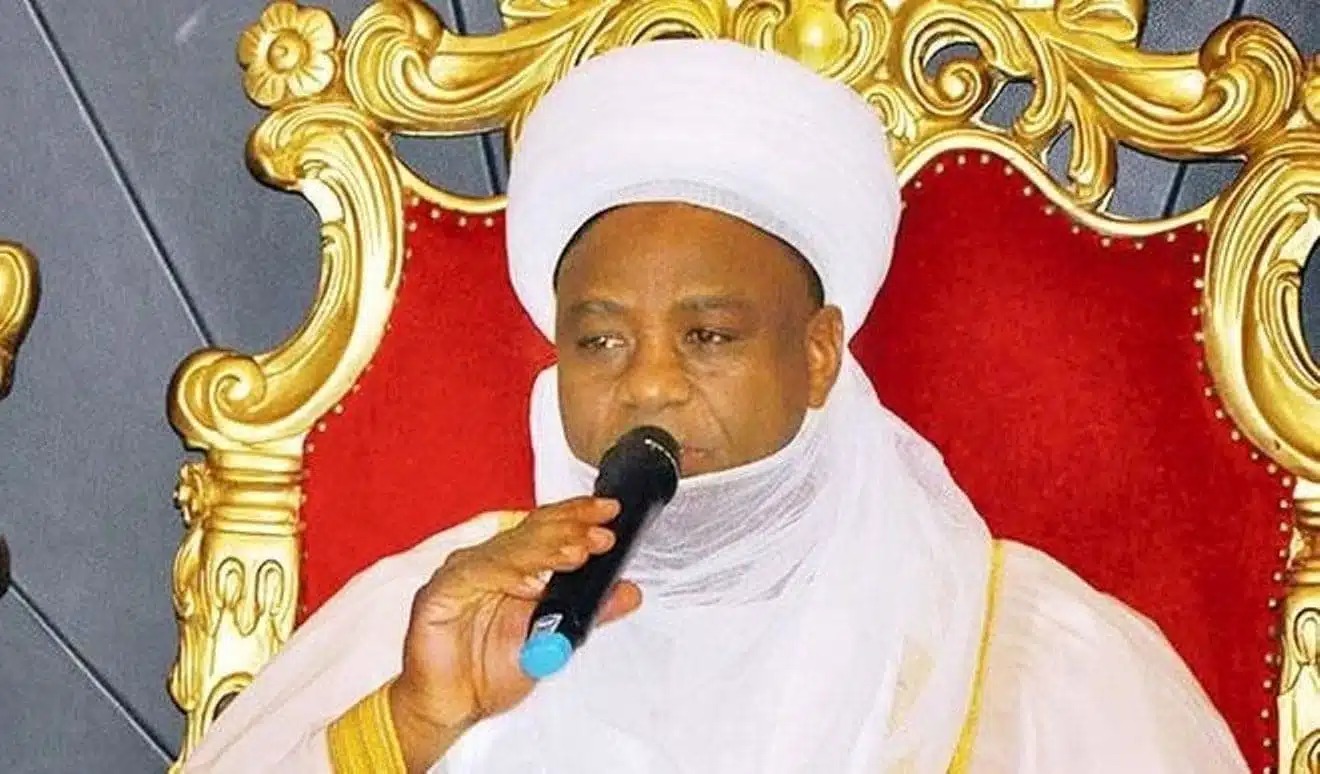Council of Imams warns against downgrading Sultan
 The Council of Imams and Ulama in Kaduna State has decried the alleged assault on the Sokoto Sultanate and reaffirmed its unwavering support for the Sultan of Sokoto, Alhaji Sa’ad Abubakar, the revered symbol of Islam in Nigeria.
The Council of Imams and Ulama in Kaduna State has decried the alleged assault on the Sokoto Sultanate and reaffirmed its unwavering support for the Sultan of Sokoto, Alhaji Sa’ad Abubakar, the revered symbol of Islam in Nigeria.
The council’s Secretary, Dr Yusuf Arrigasiyyu, stated this at a press briefing monitored in Kaduna by the News Agency of Nigeria, on Sunday.
The Muslim Rights Concern had raised concerns about an alleged plan by the Sokoto State Governor, Ahmed Aliyu, to depose the Sultan of Sokoto.
Reacting to the alarm, Vice President Kashim Shettima, at a North-West Security Forum, warned that the Sultan of Sokoto represented an idea that must be jealously guarded and projected for the nation’s growth.
The Sokoto State government, however, denied the allegation.
The state flayed MURIC for what it described as a alarm and also advised Shettima to always cross-check his facts before commenting on sensitive national matters.
A few days after, the Sokoto Emirate Council Amendment Bill scaled first and second readings in the state House of Assembly.
The bill, if enacted and signed into law by Governor Aliyu, would strip the Sultan of the power to appoint district heads without the approval of the state government.
At a public hearing organised by the state Assembly last week, the Sokoto State Attorney General and Commissioner for Justice, Nasir Muhammad Binji, said the appointment of district heads by the Sultan was an usurpation of the power of the governor.
He said, “Section 5(2) of the Constitution stipulates that the executive power to appoint in the state is vested in the governor directly or through his deputy, commissioners or any government agent assigned by the governor.
“So, there is no power given to the Sultanate council to appoint. Section 76(2) of the Sokoto Local Government and Chieftaincy Law gives the Sultanate Council the power to appoint district and village heads in the state but with the approval of the sitting governor.
“So, the section is inconsistent with the 1999 constitution as amended and therefore it cannot stand. Because the power to appoint is the executive power and who exercises the power? Is it not the governor? This is the reason for the amendment. To correct the mistake of the past.”
However, in a statement on Sunday, the Council of Imams and Ulama in Kaduna expressed displeasure with the move to strip the Sultan of the power of appointment.
“We stand in solidarity with His Eminence, the Sultan of Sokoto and criticise any attempt to degrade or undermine the esteemed office.
“The Sultanate represents the collective identity and heritage of Nigerian Muslims, transcending state boundaries.
“We view any assault on the Sultanate as an attack on our collective dignity and faith.
“We urge all parties involved to sheath their swords and embrace peace, recognising the Sultanate’s pivotal role in promoting unity, understanding, and harmony among Muslims and Nigerians.
“We call on the authorities to respect the Sultanate’s sanctity and historical significance, ensuring its continued role as a beacon of guidance and wisdom,” he said.
Arrigasiyyu, in the statement, also extended the council’s wishes to the Muslim Ummah on the new Islamic year.













